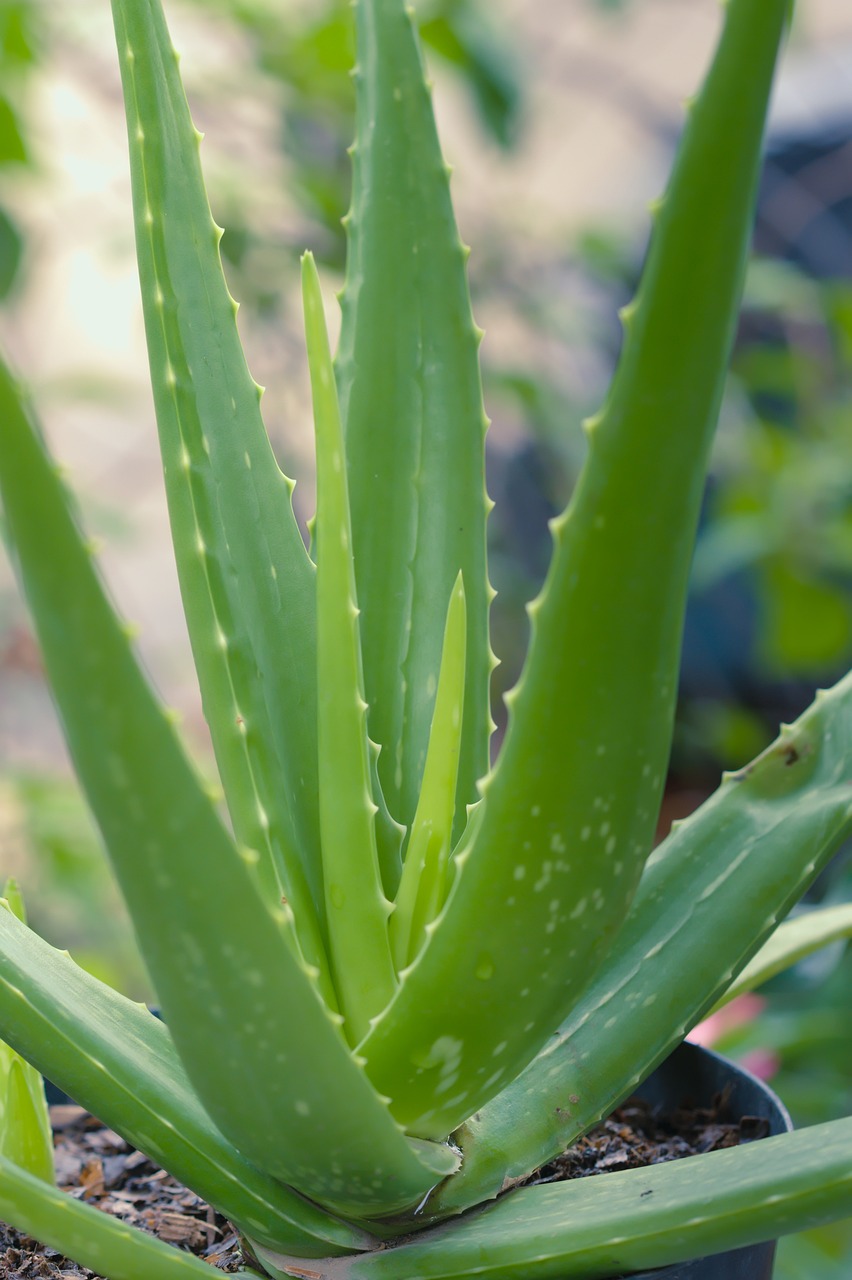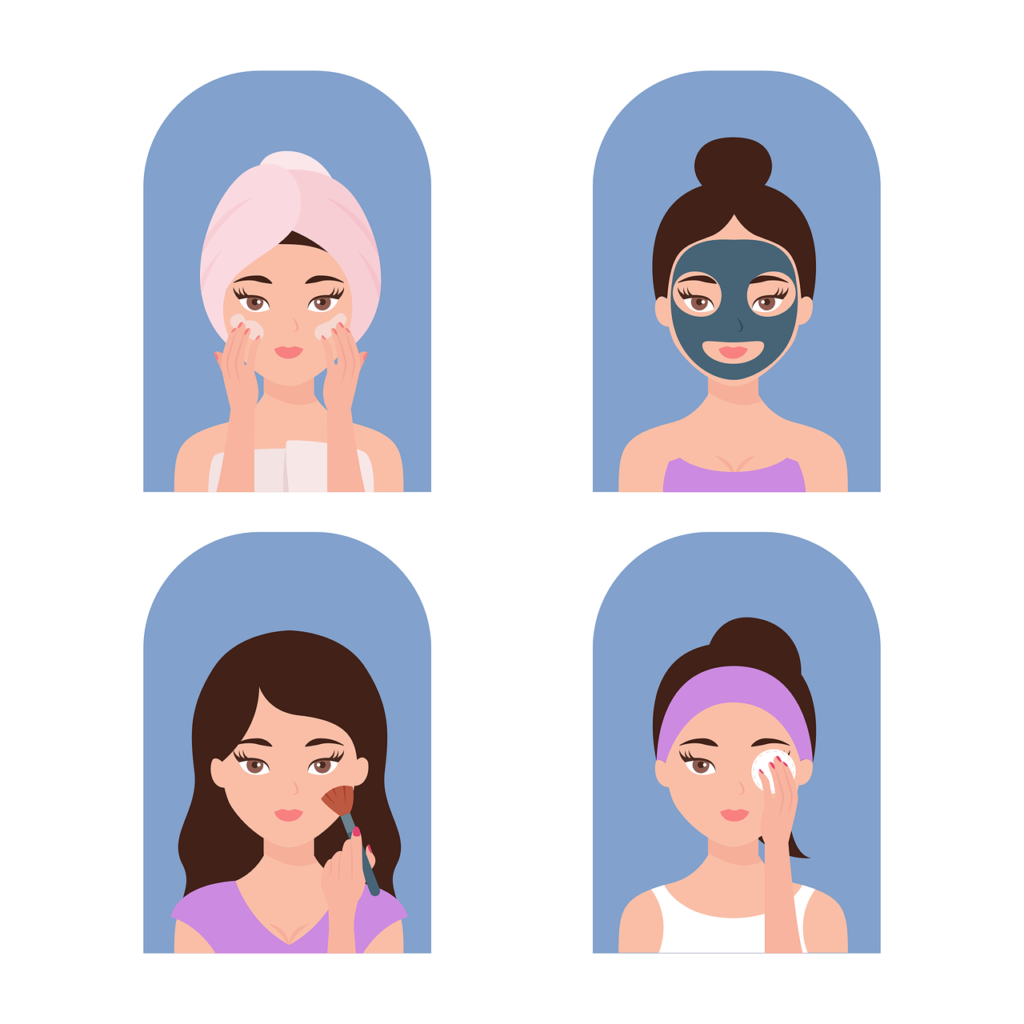7 Apple Cider Vinegar uses for pimples: The Complete Guide to DIY Skincare and Home Remedies using ACV

Welcome to a journey of exploration into the world of natural remedies for skin care, focusing on one of the most potent yet readily available ingredients in our kitchens: Apple Cider Vinegar. Revered since ancient times for its myriad health benefits, apple cider vinegar, or ACV as it is often abbreviated, holds a special place in the realm of beauty and skincare as well.
Whether you’re struggling with stubborn acne, oily skin, or you’re simply looking to maintain a radiant, healthy complexion, apple cider vinegar may just be the magic potion you need. This article uncovers the secrets of apple cider vinegar and apple cider vinegar uses for pimples, reveal smooth, clear skin, and maintain your skin’s overall health. We’ll delve into the science behind its acne-fighting abilities, demystify the process of creating homemade ACV remedies, and even provide a guide on how to make home made apple cider vinegar.
The use of natural ingredients like apple cider vinegar in skincare aligns with the principles of sustainable living and conscious consumerism, making it an all-around winner. So, let’s step into the world of apple cider vinegar and discover the wealth of apple cider vinegar uses for pimples and home remedies to cure pimples.
Table of Contents
ToggleWhat is Apple Cider Vinegar?
History of Apple Cider Vinegar
Apple cider vinegar is a traditional ingredient that has been utilised by many cultures around the world for Generations, including Greece, China & ancient Egypt. Vinegar was first used as a pickling agent by the Babylonians in 5000 BC, according to historical records. Hippocrates, the father of modern medicine, is also known to have utilised it, for its healing properties. In more recent times, apple cider vinegar has been recognized for its potential health and beauty benefits, making it a staple in many homes.
How It's Made
There are two fermentation phases involved in the making of apple cider vinegar. To begin, smashed apples are mixed with yeast to turn their sugar into alcohol. Bacteria are then introduced to the alcohol solution, causing it to continue to ferment and produce the main active componenet of vinegar acetic acid. The fermentation process itself will last between weeks to a few months, depending on the technique used.
The term “with the mother” refers to unfiltered apple cider vinegar, which has good bacteria, enzymes, and protein strands that give the liquid a murky appearance. These substances can contribute to the health benefits of apple cider vinegar.
Varieties and What to Look for When Buying
Although apple cider vinegar comes in a variety of flavours, not all of them are the same. The finest variety of apple cider vinegar is the “mother,” which is found in raw, unfiltered, organic apple cider vinegar. The “mother” is a colony of helpful bacteria that contributes to the vinegar’s therapeutic benefits while aiding in the fermenting process.
Look for apple cider vinegar variants that are murky and have a discernible “mother” floating at the bottom while you are shopping for it. The vinegar should ideally be organic and unpasteurized. Although it might appear less appealing than the clear, filtered varieties, unfiltered apple cider vinegar contains more beneficial compounds, including probiotics, enzymes, and other health-promoting substances.
The next time you’re shopping, make sure to thoroughly read the labels to make sure the apple cider vinegar you’re purchasing is the best possible choice for your skincare needs.
Making Apple Cider Vinegar At Home
Making apple cider vinegar (ACV) at home is an engaging project that can yield satisfying results. This process involves fermenting apple cider to create the vinegar.
Here is a step-by-step guide:
Ingredients:
- 10-12 Organic Apples (Preferably a sweet variety)
- 2 Tablespoons of Raw Honey
- Water
Tools Needed:
- A large glass jar (3-4 liters capacity)
- A piece of cheesecloth or paper towel
- A rubber band or string
Preparation Method:
Prepare the Apples:
- Begin by washing the apples thoroughly.
- Cut the apples into medium-sized chunks, including the cores and peel.
- The peels and cores contain natural yeast and pectin that aids in the fermentation process.
Fermentation:
- Place the apple chunks in the glass jar until it’s about 3/4 full.
- After including the raw honey, add enough water to the jar to cover the apples.
Cover the Jar:
- Using a rubber band or string, cover the jar with a piece of cheesecloth or paper towel.
- This allows the mixture to breathe while preventing insects or dust from getting in.
Ferment:
- Store the jar in a warm, dark place for about 2 weeks.
- A cupboard or pantry works well.
- During this time, the sugars in the apples will ferment and turn into alcohol.
Stir Occasionally:
- Stir the mixture every few days to prevent mold from forming and to distribute the yeast.
Strain the Liquid:
- After 2 weeks, strain out the apple chunks using a cheesecloth.
- Return the liquid to the jar.
Second Fermentation:
- Cover the jar again and return it to the same warm, dark place.
- Leave it undisturbed for about 3-4 weeks to allow for the second round of fermentation.
- Vinegar’s distinct sour taste and smell are caused by the alcohol’s conversion to acetic acid during this period.
Check for the “Mother”:
- At the end of the fermentation process, you should notice a cloudy, gelatinous substance forming at the bottom of the jar.
- This is known as the “mother” and is a sign that your vinegar is ready.
- The “mother” is a collection of beneficial bacteria and yeast, responsible for the vinegar-making process.
Strain and Store:
- Strain your vinegar one more time to remove the mother (you can save it for future batches), then store your homemade ACV in a glass bottle or jar with a tight lid.
Remember, homemade ACV is not as potent as the store-bought variety, so it may need to be used in larger quantities relative to potent variant when applied in skincare recipes.
Enjoy the process of making your own ACV and the satisfaction of using a natural product you made yourself!
Apple Cider Vinegar and Pimples
Apple cider vinegar (ACV) has become a popular natural cure for a variety of skin issues, including home remedies to cure pimples, due to its antibacterial, antifungal, and anti-inflammatory properties.
Why and How ACV can be Beneficial for Pimple Treatment and Prevention
ACV is rich in acetic, citric, malic, and amino acids, along with vitamins, enzymes, and mineral salts, which improve skin health and have pimple-fighting abilities.
Balances skin pH: One of the key reasons apple cider vinegar is good for pimples prone skin is its ability to restore and balance the skin’s pH levels. Our skin barrier is slightly acidic, and maintaining this acidic pH is essential for its health. Imbalances can lead to various skin problems, including pimples. ACV on face benefits to restore this balance, preventing the overgrowth of acne-causing bacteria and fungi.1
Antibacterial and Antifungal Properties: Apple Cider Vinegar use for skin can kill bacteria and prevent them from spreading. This is especially helpful as home remedies to cure pimples, which are often caused by Propionibacterium acnes, a kind of bacteria that, if it multiplies too much, can cause skin infections.
Anti-Inflammatory: ACV on face benefits to reduce inflammation, helping to soothe swollen, painful pimples. It also helps lessen the redness associated with acne.
Exfoliation: The malic and lactic acids found in ACV exfoliate, reduce red spots, and balance the pH of your skin.3
Precautions When Using Apple Cider Vinegar for Skin Care
DIY: Make your own Apple Cider Vinegar at Home
Apple cider vinegar (ACV) is a versatile ingredient that can be integrated into a multitude of skincare formulations, thanks to its antiseptic and antibacterial properties. It can help lessen the severity of acne by balancing the pH of the skin, prevent future breakouts, and promote a smoother, healthier complexion.
Here are several ways to include ACV in your skincare regimen, from quick home remedies to cure pimples to regular routines and intense treatments:
ACV Toner
A toner helps maintain the skin’s pH balance and removes residual dirt or oil. This toner made of apple cider vinegar is good for pimples and is excellent for acne-prone skin.
Ingredients:
- 1 part of ACV
- 2 parts of pure water
- Few drops of tea tree oil (recomended)
Preparation & Use:
- Mix ACV with distilled water.
- Tea tree oil can be added if desired for an additional antibacterial effect.
Application:
- Apply this toner gently on cleansed skin using a cotton pad.
- Use it in the morning and evening for best results.
ACV Spot Treatment Green
Apple Cider Vinegar uses for pimples include, ACV’s ability to act as a potent spot treatment to target and reduce pimples quickly.
Ingredients:
- Pure ACV
Preparation & Use:
- Dip a cotton swab into pure ACV and dab onto the affected areas.
- Leave it on overnight and wash off the next morning.
- Use it every other night.
ACV and Green Tea Face Mask
This mask combines the astringent properties of green tea with apple cider vinegar uses for pimples including its acne-fighting ability.
Ingredients:
- 1 teaspoon ACV
- 2 teaspoons cooled green tea
- 1 teaspoon honey
- 1 teaspoon white clay (optional)
Preparation & Use:
- Combine all ingredients to form a paste.
- Bypass the eye region when applying the mask to your face.
- You should rinse it with warm water after 15 to 20 minutes.
- Once or twice a week, apply this mask.
ACV and Turmeric Mask
The anti-inflammatory properties of turmeric complements the ACV on face benefits in this effective mask.
Ingredients:
- 1 teaspoon ACV
- 1 teaspoon turmeric powder
- 1 teaspoon honey
Preparation & Use:
- Mix everything together until a paste forms.
- Apply this mask on the pimples or the entire face, avoiding the eye area.
- Let it sit for 15 minutes and then rinse off with warm water.
- Use this mask twice a week.
Apple Cider Vinegar and Aloe Vera Face Wash
Overview: A balancing and cleansing home made face wash for pimples that combines apple cider vinegar uses for pimples as natural astringent properties with aloe vera’s soothing effects.
Benefits: apple cider vinegar use for skin is to balance the skin’s pH and unclog pores, while aloe vera soothes and hydrates. This DIY Face Wash for Pimples effectively cleanses and tones acne-prone skin without over-drying.
Ingredients:
• 1/4 cup apple cider vinegar
• 1/4 cup aloe vera gel
Equipment/Items needed: Small jar or container, spoon
Preparation: Mix apple cider vinegar and aloe vera gel in a jar.
Storage: Store in the refrigerator for up to 1 month.
Application: Apply a small amount to your face, massage gently, and then rinse. Use once or twice daily.
Apple Cider Vinegar and Lavender Toner
Overview: This DIY herbal natural toner at home for pimples combines the natural acidity of apple cider vinegar with the soothing properties of lavender, creating a powerful yet gentle formula suitable for acne-prone skin.
Benefits: ACV on face benefits in restoring the pH balance of the skin, while lavender provides soothing and anti-inflammatory effects. This combination works effectively to reduce redness and inflammation, promote healing, and prevent breakouts.
Ingredients:
- 1/4 cup apple cider vinegar
- 1/4 cup distilled water
- 10 drops of lavender essential oil
Tools/Items Needed:
- Measuring cup
- Small funnel (optional)
- Dark glass spray bottle or container
Preparation and Storage:
- Mix the apple cider vinegar, distilled water, and lavender essential oil in a measuring cup.
- Using a funnel if required, pour the liquid into a spray bottle or other glass container.
- Store the toner in a cool, dark place.
Use a cotton pad and the toner on clean skin, avoiding the eye area, 1-2 times per day. then use your preferred moisturiser.
Bentonite Clay & Apple Cider Vinegar Face Mask
Overview:
This detoxifying homemade face masks uses bentonite clay to draw out impurities and apple cider vinegar to balance the skin’s pH levels.
Benefits:
Deep cleanses, unclogs pores, and reduces inflammation.
Ingredients:
- 1 tablespoon bentonite clay
- 1 tablespoon apple cider vinegar
- Small bowl
- Spoon
- Face brush
- Place the apple cider vinegar and bentonite clay in a small bowl.
- Mix with apple cider vinegar just before use.
- Gently spread the mixture onto your facial skin with a brush or your fingers.
- Apply once a week for the best results.
- Store dry bentonite clay in an airtight container at room temperature.
Apple Cider Vinegar and Pimple Care: Frequently Asked Questions
1. Can apple cider vinegar cure pimples?
While ACV isn’t a cure-all, it can significantly improve pimple-prone skin. The acetic acid in ACV is known to possess antibacterial properties, which can help eliminate acne-causing bacteria. Additionally, ACV can balance the skin’s pH, reducing oil production—a primary cause of pimple formation. However, it’s essential to remember that everyone’s skin is different, and results can vary.
2. As a facial cleanser, how frequently can we use apple cider vinegar?
You should use ACV-infused skincare products sparingly, especially if you have sensitive skin. Start by using ACV products every other day, or even twice a week. Monitor how your skin reacts, then adjust frequency as needed. It’s best to consult a dermatologist if you’re unsure.
3. Does apple cider vinegar cause skin purging?
Skin purging refers to a temporary breakout that occurs when starting a new skincare product that increases skin cell turnover. While some ingredients are known to cause skin purging, ACV is not one of them. If you notice a sudden breakout after starting to use ACV, it’s more likely a reaction or irritation.
4. Can I leave apple cider vinegar on my face overnight?
ACV can be left on the skin overnight as a spot treatment for individual pimples. However, due to its acidic nature, it may cause irritation if left on for too long, especially on sensitive skin. Before using ACV on your skin, always dilute it and perform a patch test to check for any potential sensitivities.
5. May I apply apple cider vinegar to my skin on a daily basis?
For the majority of people, daily application of diluted apple cider vinegar to the skin is safe. However, because ACV is acidic and can potentially dry out your skin, it is usually recommended to use it every other day or a few times a week. As with any skincare routine, it’s critical to monitor your skin’s response and make necessary adjustments.
6. Can apple cider vinegar damage the skin?
While ACV has many potential benefits, it’s not without risk. If used undiluted or too frequently, it can disrupt the skin’s pH balance, leading to dryness, irritation, and even burns. Always use ACV in moderation, dilute it before use, and test it on a small patch of skin before applying it to your face.
Remember, It’s best to see a dermatologist if your acne is persistent so they can offer you individualised advice and treatment options.
Conclusion
As we delve into the diverse world of skincare, the power of natural remedies like apple cider vinegar becomes increasingly evident. Not only is it accessible and affordable, but it also possesses a range of properties that can help in the fight against persistent pimples. Your skincare routine can be significantly improved by its antibacterial properties, pH balancing powers, and exfoliating benefits.
However, it’s crucial to keep in mind that each person’s skin is different and will react to treatments in a different way. Always start slow, test the product on a small patch of skin, and observe how your skin responds. The process of getting clear skin is usually more like a marathon than a sprint, so keep that in mind.
Moreover, while apple cider vinegar is good for pimples care, it should be part of a broader, well-rounded skincare regimen. Ensure you’re also maintaining a balanced diet, hydrating sufficiently, getting adequate sleep, and managing stress levels—all of which play a significant role in skin health.
Finally, remember that chronic or severe acne may occasionally be a sign of a more serious condition. If your pimples persist despite your best efforts, it may be time to consult a dermatologist. They can provide professional guidance and suggest more targeted treatments.
The beauty of DIY skincare treatments like those involving apple cider vinegar is the ability to customize them to suit your unique skin needs. So, go ahead, explore the potential of apple cider vinegar for your skincare
Related Topic's
A Guide to Aloe Vera for Pimple Free Skin Naturally


